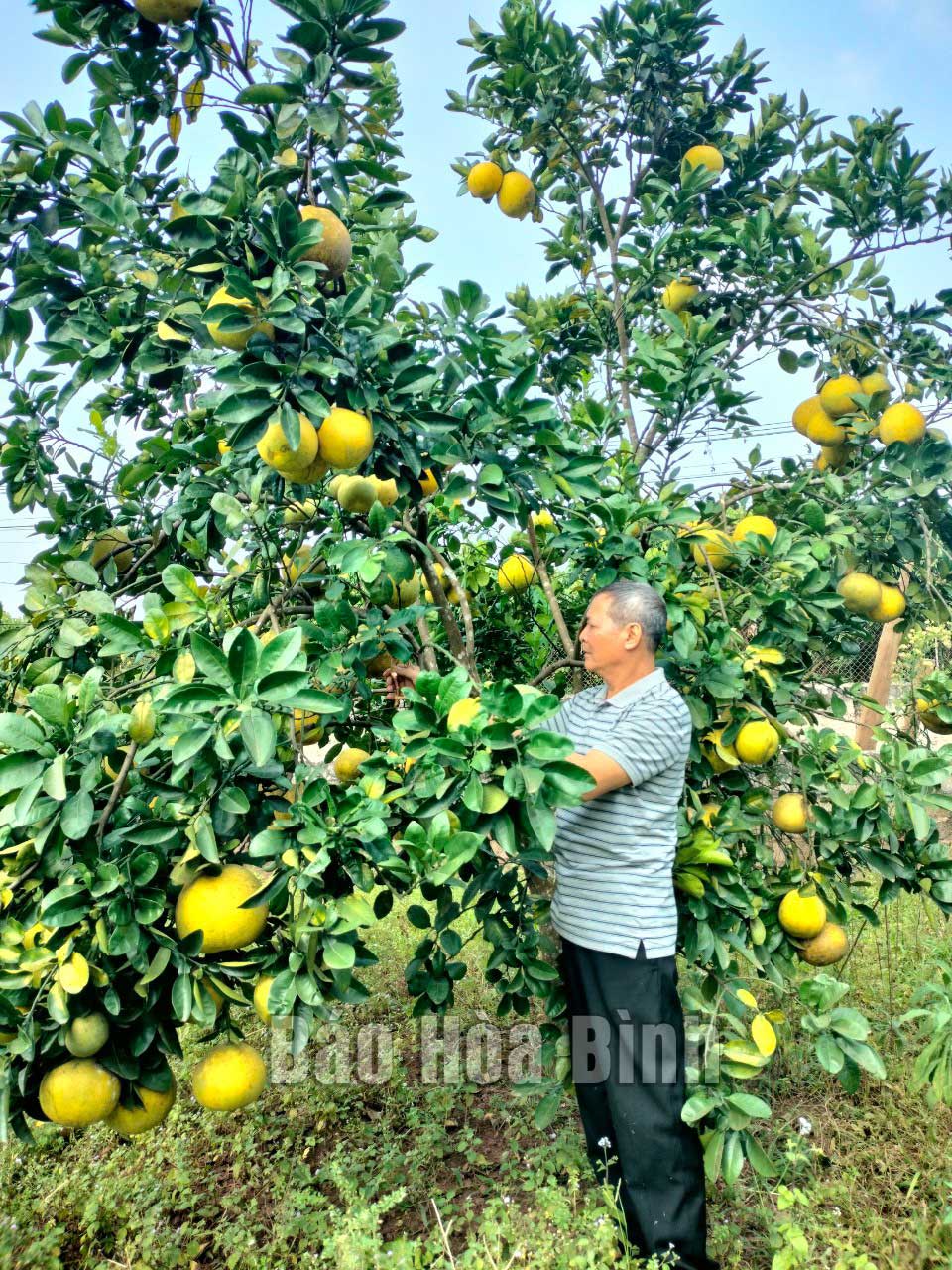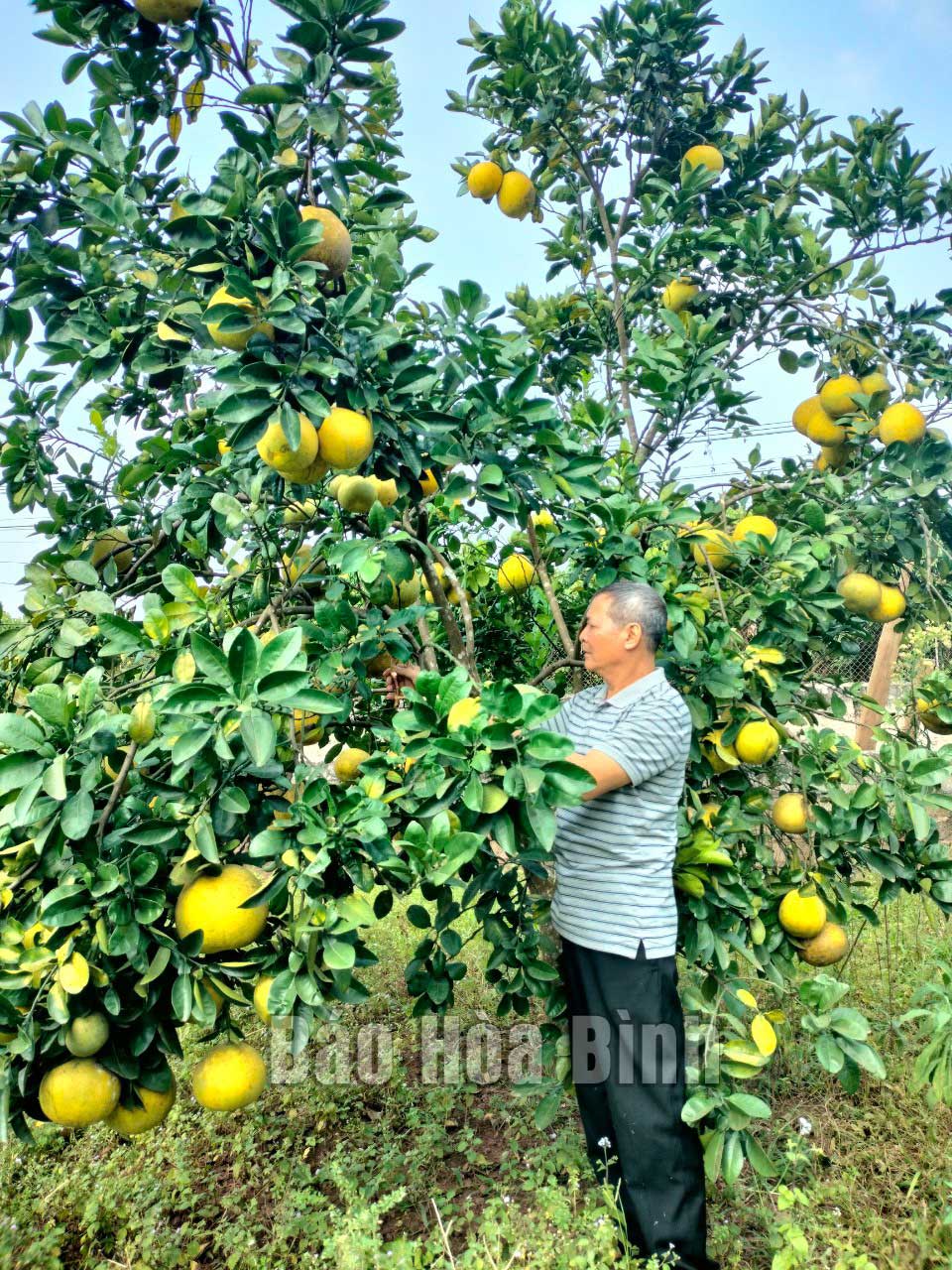
(HBO) – The first batch of Tan Lac red pomelo has been shipped to the UK, opening up a new opportunity, new market, and sustainable growth orientation for the fruit.

Members of the Tan Dong organic pomelo cooperative
have actively applied technological advances to improve the productivity and
quality of their product.
Tan Lac’s first batch, weighing nearly 7 tonnes, was also
Vietnam’s first of the citrus fruit sold overseas. Its producer is the Tan Lac
red pomelo production-processing-distribution cooperative, with related
packaging and transport activities serving the export done by the FUSA organic
farming company. All samples of the batch met technical requirements on food
safety set by the EU and UK.
Duong Duc Tinh, member of the Tan Lac cooperative, said the
batch is an important star for the fruit to reach more international markets.
The cooperative houses 50ha of pomelo orchards, with the trees cultivated
following the VietGAP and organic standards. Its annual revenue is estimated at
7 billion VND (296,861 USD).
Red pomelo is an indigenous plant variety of Hoa Binh,
cultivated by the people of Tan Lac’s Dong Lai commune since the 60s of the
last century. In 2014, the Ministry of Agriculture and Rural Development
recognised the Hoa Binh red pomelo plant variety. In 2016, the provincial
People's Committee approved a project to develop red pomelo production in the
three districts of Tan Lac, Lac Son, and Kim Boi, with the scale targeted to
reach 2,000 ha by 2020. In 2017, the National Office of Intellectual Property
issued a trademark certificate for the Tan Lac red pomelo.
To date, Tan Lac’s total area under the citrus trees is approximately
2,600 ha, including 240ha of red pomelo with VietGap and organic certification
and 140ha. The locality is home to six red pomelo growing areas granted codes
according to standards for export to the EU.
Nguyen Hong Yen, Director of the provincial Sub-Department
of Cultivation and Plant Protection said that after two-year since the signing
of the UK-Vietnam Free Trade Agreement, only 10 batches of pomelos weighing
over 200 tonnes were exported to the UK, most of them green-skinned pomelos
from southern provinces.
The shipment of Tan Lac red pomelo is a great source of
encouragement for future batches toward making export a distribution channel
for Hoa Binh’s key products./.
According to data from the Hoa Binh Provincial Party Committee, the industrial production index for the first six months of 2025 is estimated to have increased by 20% compared to the same period last year. This marks the highest year-on-year growth rate for this period since 2020.
In the first six months of 2025, Hoa Binh province’s export turnover was estimated at 1.145 billion USD, marking an 18.11% increase compared to the same period in 2024. Import turnover was estimated at $ 804 million, a 17.15% increase, which helped the province maintain a positive trade balance.
The lives of the ethnic minority farmers in Tan Lac district have gradually improved thanks to the new directions in agricultural production. This is a testament to the collective strength fostered through the professional associations and groups implemented by various levels of the district’s Farmers’ Union.
With the motto the "product quality comes first,” after nearly one year of establishment and operation, Muong village’s Clean Food Agricultural and Commercial Cooperative, located in Cau Hamlet, Hung Son Commune (Kim Boi district), has launched reputable, high-quality agricultural products to the market that are well-received by consumers. The products such as Muong village’s pork sausage, salt-cured chicken, and salt-cured pork hocks have gradually carved out a place in the market and they are on the path to obtaining the OCOP certification.
In the past, the phrase "bumper harvest, rock-bottom prices" was a familiar refrain for Vietnamese farmers engaged in fragmented, small-scale agriculture. But today, a new spirit is emerging across rural areas of Hoa Binh province - one of collaboration, organisation, and collective economic models that provide a stable foundation for production.
Maintaining growing area codes and packing facility codes in accordance with regulations is a mandatory requirement for agricultural products to be eligible for export. Recently, the Department of Agriculture and Environment of Hoa Binh province has intensified technical supervision of designated farming areas and packing facilities to safeguard the "green passport" that enables its products to access international markets.



